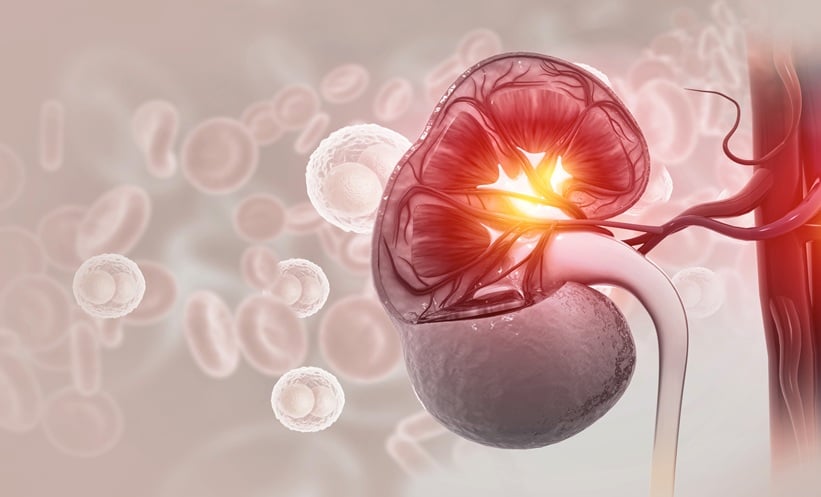AN INSIGHTFUL study suggests that certain oral molecularly targeted cancer therapies may increase the risk of progressive kidney dysfunction over two years, even when an early rise in serum creatinine (sCr) is potentially reversible. The research highlights the importance of ongoing renal monitoring in patients receiving specific anticancer drugs.
The retrospective cohort study examined 5,015 adult patients treated at Stanford Hospital and clinics since 2008. Participants received cyclin-dependent kinase 4 or 6 (CDK4/6) inhibitors, vascular endothelial growth factor receptor (VEGFR) inhibitors, estimated glomerular filtration rate (EGFR) inhibitors, B-Raf (BRAF) inhibitors, or other molecularly targeted therapies. Each patient was compared with a propensity score–matched cohort of individuals without cancer.
The primary outcome examined was progressive kidney dysfunction, defined as a sustained 30% or greater decline in estimated glomerular filtration rate (eGFR) or progression to end-stage kidney disease. Baseline eGFR was calculated using the mean value from the first 60 days of therapy to account for any initial, potentially reversible rise in sCr caused by the drugs.
Which Targeted Therapies Pose the Highest Risk of Kidney Dysfunction?
Overall, patients treated with molecularly targeted therapies experienced a higher incidence of progressive kidney dysfunction than matched controls: 44 versus 38 events per 1,000 person-years (hazard ratio [HR] 1.4, 95% confidence interval [CI] 1.2–1.6). The risk was particularly pronounced in patients receiving CDK4/6 inhibitors (HR 1.9, 95% CI 1.4–2.6), EGFR inhibitors (HR 1.8, 95% CI 1.2–2.5), VEGFR inhibitors (HR 2.1, 95% CI 1.6–2.7), and BRAF inhibitors (HR 1.9, 95% CI 1.1–3.3).
Interestingly, higher rates of kidney dysfunction persisted even in patients who did not show a significant early sCr increase and those without prior chemotherapy or immunotherapy exposure. Conversely, therapies including poly(adenosine diphosphate-ribose) polymerase (PARP) inhibitors, human epidermal growth factor receptor 2 (HER2) inhibitors, and anaplastic lymphoma kinase (ALK) inhibitors were not associated with increased renal risk.
The findings suggest that while some drugs may cause a temporary “pseudoacute” kidney effect due to reversible tubular creatinine inhibition, certain targeted therapies carry a genuine long-term risk.
Implications for Clinical Practice and Patient Care
The authors recommend that clinicians closely monitor kidney function in patients treated with CDK4/6, EGFR, VEGFR, and BRAF inhibitors. Early detection of progressive kidney dysfunction could enable timely interventions and potentially reduce long-term renal complications in patients undergoing targeted cancer therapy.
Reference
Ziolkowski S et al. Molecularly Targeted Cancer Medications and Kidney Health. JAMA Netw Open. 2025;8;(11):e2541221.








